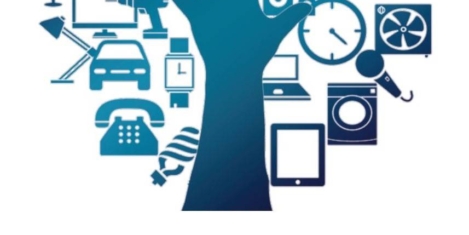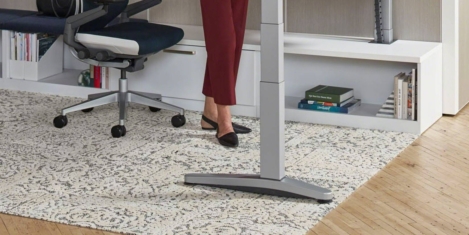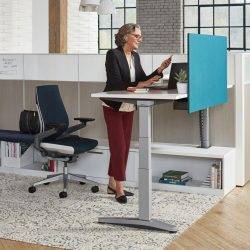August 2, 2018
Financial stress can impair employee performance and attendance

Businesses that fail to tackle their employees’ financial stress are more likely to encounter poor work performance, lack of engagement, mental health issues and staff absenteeism, a new report from Neyber has claimed. Since last year, there has been a significant increase in the number of employees affected by financial worries; up from 58 percent to 63 percent, as well as those with less than one month’s savings; up from 24 percent to 32 percent. This stress on individuals is having a severe business impact. One in four employees said they had lost sleep over money troubles in the last year, one in ten said that they couldn’t focus on work and 6 percent said they had had to take time off work. All this adds up to a substantial cost for employers to bear. Neyber has calculated that the lost productivity and increased absence and employee turnover associated with financial stress costs UK companies in the region of £120.7 billion every year.
















 Sexual harassment in the workplace is widespread and commonplace, with unwanted sexual behaviours such as sexual comments, touching, groping and assault seen as an everyday occurrence and part of the culture in workplaces, and the Government, regulators and employers are failing in their responsibilities to tackle the problem says an influential group of MPs. Employers and regulators have ignored their responsibilities for too long, found the Women and Equalities Committee following a wide-ranging six-month inquiry and often legal protections are not available to workers in practice. The Committee found that despite 40 percent of women and 18 percent of men having experienced unwanted sexual behaviour in the workplace there has been a failure to tackle unlawful behaviours, despite the Government’s obligations under international law. The report calls on Government to focus on five priorities to put sexual harassment at the top of the agenda for employers.
Sexual harassment in the workplace is widespread and commonplace, with unwanted sexual behaviours such as sexual comments, touching, groping and assault seen as an everyday occurrence and part of the culture in workplaces, and the Government, regulators and employers are failing in their responsibilities to tackle the problem says an influential group of MPs. Employers and regulators have ignored their responsibilities for too long, found the Women and Equalities Committee following a wide-ranging six-month inquiry and often legal protections are not available to workers in practice. The Committee found that despite 40 percent of women and 18 percent of men having experienced unwanted sexual behaviour in the workplace there has been a failure to tackle unlawful behaviours, despite the Government’s obligations under international law. The report calls on Government to focus on five priorities to put sexual harassment at the top of the agenda for employers.
 At the risk of stating the obvious, with the Met Office suggesting temperatures could reach their peak on Friday (27 July) in some areas of the UK, Britain’s largest employer organisation is encouraging companies to consider ‘a range of measures to keep employees comfortable during the heatwave’. Matthew Fell, CBI Chief UK Policy Director, said: “While the current hot spell has provided welcome fillip for consumer-facing sectors, large numbers of employees are feeling the heat as they carry out their day-to-day tasks, especially those working outdoors. Responsible employers take the welfare of their employees very seriously, particularly during this unusual weather. Companies can help keep their employees cool by considering a range of measures, from flexible working to help those with punishing commutes to relaxed dress codes, so staff feel more comfortable in their place of work. Ultimately a common sense approach is needed, as some employees will have less flexibility than others, for example those wearing safety equipment on construction sites. In all cases, staff should have easy access to drinking water as temperatures soar to help keep them healthy and productive.”
At the risk of stating the obvious, with the Met Office suggesting temperatures could reach their peak on Friday (27 July) in some areas of the UK, Britain’s largest employer organisation is encouraging companies to consider ‘a range of measures to keep employees comfortable during the heatwave’. Matthew Fell, CBI Chief UK Policy Director, said: “While the current hot spell has provided welcome fillip for consumer-facing sectors, large numbers of employees are feeling the heat as they carry out their day-to-day tasks, especially those working outdoors. Responsible employers take the welfare of their employees very seriously, particularly during this unusual weather. Companies can help keep their employees cool by considering a range of measures, from flexible working to help those with punishing commutes to relaxed dress codes, so staff feel more comfortable in their place of work. Ultimately a common sense approach is needed, as some employees will have less flexibility than others, for example those wearing safety equipment on construction sites. In all cases, staff should have easy access to drinking water as temperatures soar to help keep them healthy and productive.”















July 31, 2018
Google should be an example to all when it come to interactive workplace design
by Alice Porter • Comment, Workplace design
More →